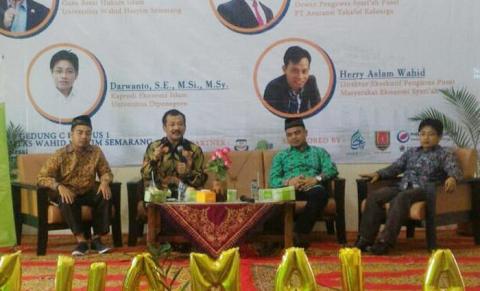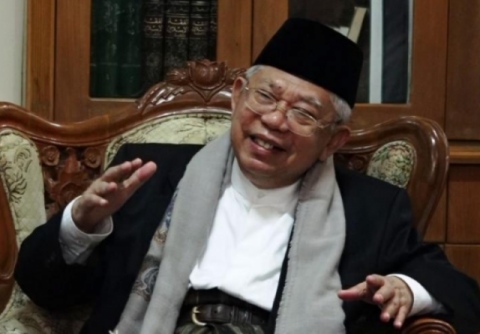Islamic law of offering aqiqah for deceased parents
NU Online · Rabu, 11 Agustus 2021 | 03:11 WIB
Assalamu'alaikum wr. wb.
Dear NU Online editor, please let me ask about aqiqah law. What is the aqiqah law for deceased parents? Is it legal? We thank you alot for your response and explanation. Wassalamu alaikum wr. wb. (Amen/Kediri).
Answer
Dear questioner and readers, may Allah give His mercy to all of us. As it is known, originally aqiqah is the right of a child whose stressed sunnah is fulfilled by his parents on the seventh day of birth.
If it has not been implemented until after that day, parents are still prescribed to perform a aqiqah for their children until they reach puberty. After puberty, parents are no longer required to practice their aqiqah because in fiqh, children who have reached puberty are independent and not tied to their parents.
In fact, when the child reaches the age of puberty, the child is allowed to choose by offering aqiqah for himself or not. (Muhammad bin Umar Nawawi Al-Bantani, Tausyih 'alâ Ibnil Qâsim, page 273).
From this explanation, we know that it is actually recommended to offering aqiqah by parents and then the child concerned if he has not had time to perform it until he reaches puberty. Then how is the law to offer aqiqah for parents who have died? Is it valid as the question above?
Referring to the Decision of the 17th Bahtsul Masail of the All Java-Madura Islamic Boarding School Deliberation Forum (FMPP), the law of offering aqiqah for a deceased parent is allowed if there is a will. This is equated with the law of sacrificing for himself that is also the law. In deatail the formulation of bahtsul masail states:
"It is legal to offer aqiqah for parents who are still alive if there is permission from them. While offering aqiqah for parents who have passed away its law is also allowed if there is a will as it is permissible to make sacrifices in the name of the deceased (according to some ulama opinions).” (Decision of Commission A Bahtsul Masail 17th Deliberative Forum for Islamic Boarding Schools in Java, Madura at PP Nurul Cholil Bangkalan on 8-9 Jumadal Ula 1429 H/14-15 May 2008 AD).
What is meant by some opinions in the formulation are some opinions of Shafi'i muslim scholars such as Sheikh Zakariya Al-Ansari, Sheikh Al-Khatib As-Syirbini, Imam Al-Baghawi and others, that require the existence of a will from the deceased during his life for the validity of the sacrifices made by others for himself after his death. Sheikh Al-Khatib As-Syirbini stated:
قَالَ: (وَلَا) تَضْحِيَةَ (عَنْ مَيِّتٍ إِنْ لَمْ يُوصِ بِهَا) لِقَوْلِهِ تَعَالَى: وَأَنْ لَيْسَ لِلْإِنْسَانِ إِلَّا مَا سَعَى [النجم: 39]، فَإِنْ أَوْصَى بِهَا جَازَ
Sumber: https://islam.nu.or.id/post/read/130688/hukum-aqiqah-untuk-orang-tua-yang-sudah-meninggal
===
Yuk, install NU Online Super App versi Android (s.id/nuonline) dan versi iOS (s.id/nuonline_ios). Akses dengan mudah fitur Al-Qur'an, Yasin & Tahlil, Jadwal Shalat, Kompas Kiblat, Wirid, Ziarah, Ensiklopedia NU, Maulid, Khutbah, Doa, dan lain-lain.
Sumber: https://islam.nu.or.id/post/read/130688/hukum-aqiqah-untuk-orang-tua-yang-sudah-meninggal
===
Yuk, install NU Online Super App versi Android (s.id/nuonline) dan versi iOS (s.id/nuonline_ios). Akses dengan mudah fitur Al-Qur'an, Yasin & Tahlil, Jadwal Shalat, Kompas Kiblat, Wirid, Ziarah, Ensiklopedia NU, Maulid, Khutbah, Doa, dan lain-lain.
"It is not permissible to sacrifice in the name of a dead person if he did not make a will during his life, because the word of Allah means 'That a human being does not get anything other than what he has worked for' (an-Najm verse 39). If he wills it, it is permissible." (Muhammad Al-Khatib As-Syirbini, Mughnil Muhtâj ilâ Ma'rifati Ma'ânî Alfâdhil Minhâj, [Beirut, Dârul Fikr: tth.], juz IV, page 292).
From the explanation above, it could be concluded that the law of offering aqiqah for deceased parents is permissible as long as there is a will from them, as is the law of sacrificing for them.
Hopefully it could be understood well. We are always open to receiving suggestions and criticisms from readers. Wallâhul muwaffiq ilâ aqwamith thâriq. Wassalamu 'alaikum wr. wb.
(Ustadz Ahmad Muntaha AM, Islamic Editor of NU Online and Founder of Aswaja Muda)
Terpopuler
1
Rais Aam PBNU dan Sejumlah Kiai Terima Penghargaan dari Presiden Prabowo
2
NU Banten Membangkitkan Akar Rumput
3
Rais 'Aam PBNU Ajak Umat Islam Tanggapi Masa Sulit dengan Ilmu
4
Ketua PBNU Nilai BPKH Penting Tetap sebagai Lembaga Independen
5
Tidak Hanya Pelajar, BGN juga Targetkan MBG Menyasar Ibu Hamil dan Menyusui
6
Penerapan Sumpah dan Bukti di Pengadilan Islam: Studi Qasamah dalam Kasus Pembunuhan
Terkini
Lihat Semua



















